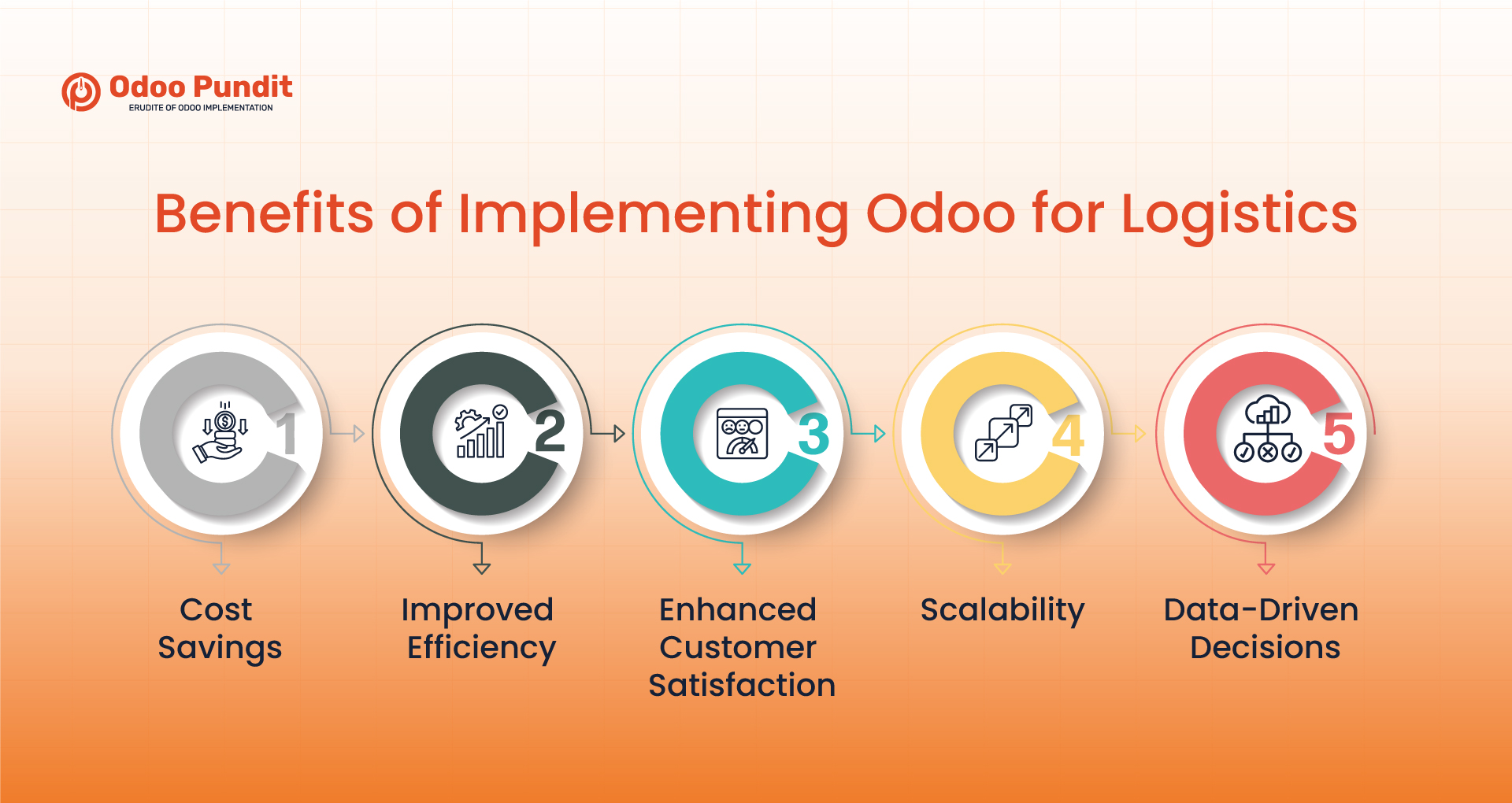In today’s fast-paced business world, logistics is the backbone of successful operations. From shipping products to managing warehouses and ensuring timely deliveries, businesses face multiple challenges in keeping their supply chains efficient. This is where Odoo, a leading ERP platform, comes in. With its robust modules and seamless functionality, Odoo for logistics offers businesses an all-in-one solution to track shipments, manage inventory, and streamline deliveries.
In this guide, we’ll explore how Odoo can transform your logistics operations, the benefits of implementing it, and practical tips for making the most out of your ERP investment.
Understanding Modern Logistics Challenges
Logistics today is more complex than ever. Companies must handle a growing volume of orders, manage multiple warehouses, and meet customer expectations for fast and accurate delivery. Common challenges include:
- Delayed Shipments: Inefficient tracking and outdated systems can cause shipment delays, impacting customer satisfaction.
- Inventory Inaccuracies: Mismanaged stock leads to overstocking, stockouts, and lost revenue.
- Inefficient Delivery Routes: Poorly planned routes increase delivery costs and reduce operational efficiency.
- Limited Visibility: Without real-time data, logistics managers struggle to make informed decisions.
These challenges create friction in the supply chain, making it essential to adopt a solution that integrates all logistics processes under one roof.
How Odoo ERP Transforms Logistics Operations
Odoo ERP provides a modular approach to business management, making it ideal for logistics-heavy industries. Its flexible platform allows businesses to manage shipments, inventory, and deliveries seamlessly. Let’s explore how.
Real-Time Shipment Tracking with Odoo
Keeping track of shipments can be overwhelming, especially if your business relies on multiple carriers. Odoo simplifies this process with real-time tracking, enabling you to monitor every order from warehouse to customer doorstep. By integrating with carriers like UPS, FedEx, and DHL, Odoo ensures accurate and timely updates.
With Odoo, logistics managers can:
- Access shipment status instantly
- Identify bottlenecks early
- Communicate accurate delivery timelines to customers
For businesses looking to enhance operational efficiency, Odoo integration with existing shipping solutions can reduce manual tracking errors and improve overall customer satisfaction.
Streamlined Inventory Management
Inventory management is one of the most critical aspects of logistics. Mismanaged stock can result in lost revenue and dissatisfied customers. Odoo’s inventory module provides a complete overview of your stock, whether across a single warehouse or multiple locations.
Key features include:
- Barcode Scanning: Automates stock updates, reducing errors.
- Real-Time Inventory Levels: Provides instant visibility into available products.
- Multi-Location Management: Tracks stock movement across warehouses and stores.
This capability ensures that your team always has accurate data at their fingertips, preventing costly mistakes. Companies can also leverage Odoo customization to tailor inventory workflows to their specific needs, making processes even more efficient.
Optimizing Deliveries with Odoo
Deliveries are the final, critical step in logistics, and inefficiencies here can damage customer relationships. Odoo helps optimize delivery routes, schedule shipments, and integrate seamlessly with last-mile delivery services.
Benefits include:
- Route Optimization: Plans the most efficient delivery paths.
- Automated Scheduling: Reduces manual planning errors.
- Integration with Carriers: Ensures smooth coordination with shipping partners.
By adopting Odoo implementation tailored to logistics needs, businesses can cut delivery times, reduce transportation costs, and improve overall service quality.
Benefits of Implementing Odoo for Logistics
Implementing Odoo in your logistics operations brings a host of advantages:
- Cost Savings: Automating shipments, inventory, and deliveries reduces manual errors and operational expenses.
- Improved Efficiency: Real-time data and integrated modules streamline processes.
- Enhanced Customer Satisfaction: Accurate tracking, timely deliveries, and transparent communication increase customer trust.
- Scalability: Odoo grows with your business, allowing you to add modules as needs evolve.
- Data-Driven Decisions: Analytics and reporting enable managers to make informed, strategic choices.
Businesses that invest in Odoo customization often find it easier to adapt the ERP to unique operational workflows, gaining a competitive edge in the market.
Real-World Use Cases
Many businesses across industries have successfully implemented Odoo for logistics. Here are a few examples:
- E-Commerce Companies: Leveraging real-time shipment tracking and automated inventory updates to handle thousands of daily orders.
- Manufacturers: Using multi-location inventory management to coordinate raw materials and finished goods efficiently.
- Retail Chains: Optimizing deliveries and route planning to reduce transportation costs while ensuring timely restocking.
These examples demonstrate how Odoo integration with existing tools and systems can transform supply chain operations.
Tips for Maximizing Odoo’s Logistics Capabilities
- Leverage Automation: Automate repetitive tasks like stock updates, shipment notifications, and delivery scheduling.
- Use Reporting Tools: Monitor KPIs like delivery times, stock levels, and order accuracy to make data-driven decisions.
- Invest in Training: A well-trained team maximizes Odoo’s potential.
- Integrate Third-Party Tools: Enhance functionality with apps and extensions that complement your logistics processes.
- Regularly Review Processes: Logistics needs evolve; keep updating workflows for efficiency.
FAQs
Q1: What is Odoo ERP?
Odoo ERP is an open-source business management software that integrates various functions, including logistics, finance, sales, and more, into a single platform.
Q2: How does Odoo improve shipment tracking?
Odoo provides real-time shipment tracking and integrates with major carriers, offering accurate delivery status and reducing delays.
Q3: Can Odoo handle multiple warehouses?
Yes. Odoo supports multi-location inventory management, enabling businesses to track stock across various warehouses seamlessly.
Q4: Is Odoo suitable for small businesses?
Absolutely. Odoo’s modular approach allows scalability, making it suitable for businesses of all sizes.
Conclusion
Efficient logistics is essential for business success, and Odoo provides a comprehensive solution for managing shipments, inventory, and deliveries. By integrating Odoo into your operations, you can improve efficiency, reduce costs, and enhance customer satisfaction.
Whether you’re just starting or looking to optimize your supply chain, Odoo implementation, Odoo customization, and Odoo integration are key strategies for achieving a smooth and scalable logistics operation.
Ready to transform your logistics operations?
Explore how Odoo can streamline your shipment tracking, inventory management, and delivery processes.
